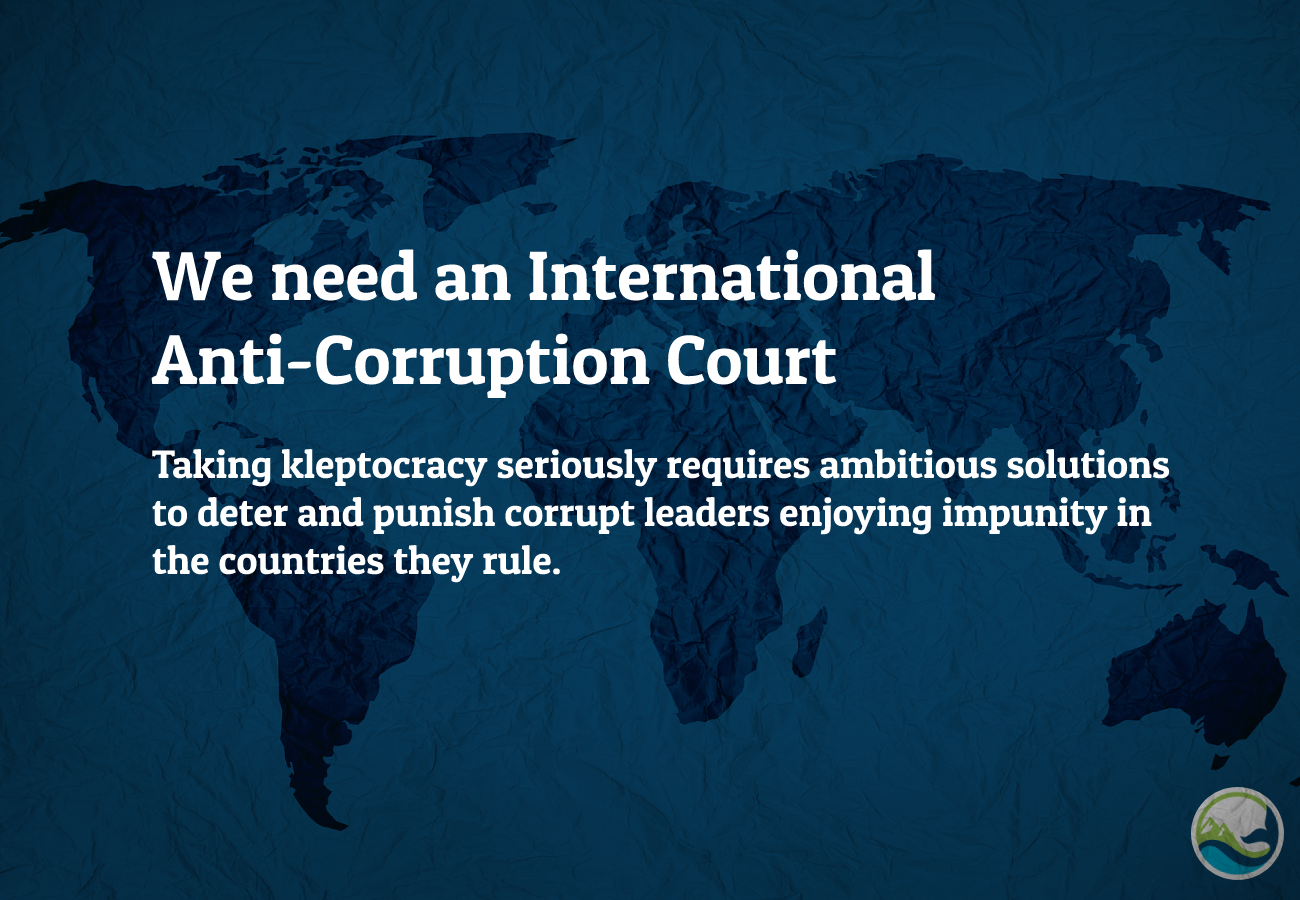
We need an International Anti-Corruption Court
24 Jun 2022 (POLITICO)
Danilo Türk is the former president of Slovenia and the current president of Club de Madrid. He was recently appointed member of the U.N. Secretary-General’s High-Level Advisory Board.
Corruption isn’t a new phenomenon.
It’s even been argued, at times, that a certain degree of corruption may be inevitable and even healthy for the economic locomotive. In these times of heightened political scrutiny and disillusionment, however, its persistence under all manner of political systems has made it a pressing social problem that needs to be addressed head on.
With a cost to the global economy estimated at around $2.6 trillion a year — or 5 percent of global gross domestic product — corruption comes in many forms, and no country is immune. Thus, adequately meeting the challenge will require the establishment of an international mechanism, one that acknowledges corruption isn’t just a local crime.
Kleptocracy, or the abuse of public power for private gain by a nation’s leaders — stagnates the potential for growth and development and erodes citizens’ trust in democracy, contributing to the disconcerting rise of social polarization, which threatens the foundations of many liberal democracies both old and new.
This plague — which respects neither borders nor laws — can bankrupt nations, governments, communities and people, destroy the environment and undermine our trust in public institutions. It’s a crime that further exacerbates inequality, poverty and social division.
Alas, corruption is also difficult to solve, and in recent decades, most countries haven’t made much progress in this regard. Despite the fact that there are 189 parties — including 181 countries — to the United Nations Convention Against Corruption (UNCAC), which requires laws criminalizing bribery, embezzlement, money laundering and other forms of corrupt conduct, kleptocracy still thrives. And because they control the administration of justice in the countries they rule, kleptocrats enjoy impunity in too many places.
However, thanks to the work of courageous journalists, recent major document leaks like the Pandora Papers, and earlier releases of financial records like the Panama Papers, have highlighted the enormous scale of these crimes. And though this has produced extensive evidence of corrupt transnational schemes, few of the high-level officials exposed by the reporting have faced political consequences — even fewer have faced the prospect of losing their assets and freedom.
Citizens correctly wonder how these crimes can continue to go unpunished, while the middle classes are stagnated and tired of facing the consequences of crisis after crisis.
So far, the impunity and transnational nature of corruption has led to a variety of calls proposing different solutions that could cross borders and enforce laws that other countries can’t — or won’t — enforce themselves.
Along these lines, sanctions are sometimes used against corrupt leaders, and are an important short-term accountability mechanism, but they are only a political response to the problem of grand corruption. To fundamentally alter the calculations of kleptocrats and their professional enablers, the world needs a comprehensive and impartial rule of law response to the problem, which would be embodied in a new international institution — an International Anti-Corruption Court (IACC).
The IACC could be a mechanism filling the crucial gap in the international legal framework for combating corruption and enhancing transparency in governance structures.
Through its agreed mandate, if the country ruled by the kleptocrat is unwilling or unable to prosecute a case itself, the court should have jurisdiction to prosecute the crimes committed by kleptocrats and their transnational networks of collaborators that are already criminalized under the UNCAC.
And as with the International Criminal Court, the IACC should have the authority to prosecute crimes committed by nationals of member countries and nationals of other countries in the territory of a member country. It should be a court of last resort with the capacity to prosecute and imprison kleptocrats and, thus, create opportunities for the democratic process to replace them with honest leaders. The court should also have — in civil as well as criminal cases — the authority to recover, repatriate and repurpose illicit assets for the victims of grand corruption.
Since the declaration calling for the creation of the IACC was first published in June 2021, over 250 luminaries — including 43 former presidents and prime ministers and 32 Nobel Laureates — from more than 75 countries have now signed it, and the governments of Canada and the Netherlands have committed to working with international partners to establish the court. Two successive presidential administrations in Colombia and the newly elected president of Timor-Leste have also endorsed the IACC.
I am acutely aware of, and concerned about, the enormous negative impact of grand corruption on societies, from combating climate change and pandemics to enhancing international peace and security, and the very pillars of democracy. To help remedy its devastating consequences, it’s critical that more countries join the emerging coalition committed to the creation of an IACC.
Recognizing that creating a new international court may be a long-term endeavour, Canada, the Netherlands, Ecuador and other partners will convene a ministerial conference in late 2022 to analyze the gaps in the international legal framework for combating corruption and potential solutions. It will particularly focus on creating a receptive environment for the proposal in the international community.
Corruption isn’t inevitable, and it’s not unstoppable.
It does, however, require a collective commitment to the long-term efforts made to establish ambitious anti-corruption solutions at the international level. Only then can we create an effective institution that contributes to securing a more just, rules-based global order.
The need for action has never been more pressing. Democracies have a unique mandate to take action and show that they can deliver on something as essential to their very nature as the rule of law. We all need to stand up.



